- Home
- Edward Rutherfurd
The Rebels of Ireland: The Dublin Saga Page 3
The Rebels of Ireland: The Dublin Saga Read online
Page 3
“The letter speaks of a betrothal. It seems strange that he should ask for you upon so small acquaintance,” he remarked. Princes might marry with nothing more than an ambassador’s report and a miniature portrait, but the gentry around Dublin usually were well acquainted before they married.
“I should wish to know him better, Father, if his interest in me is serious.”
“Of course, my child.” He nodded, and let his eyes turn again towards the sea.
So he did not notice the look that Orlando gave his sister, or the warning glare she gave him in return.
Orlando was so excited. And he felt so pleased with himself. Because he had guessed.
The first time had been the previous summer, while Anne was home from France. They had gone for a walk together and were about a mile away from home when they encountered the young man. Anne and the man had seemed to recognise each other, but Orlando had not learned the stranger’s name. They had strolled together a little way to some trees and, finding a large log, Anne and the man had sat on it to talk, while Orlando had explored the wood. For some reason, Anne had made him promise to keep the meeting a secret; and it had made him feel very proud that his big sister would trust him like this.
Although she was six years older, Anne had always been a presence in his life. His older brother Lawrence was always kind, and was Orlando’s hero; but he had already been abroad at his studies ever since Orlando could remember, and so he was at best an occasional presence in the house. Until two years ago, Anne had still been doing her lessons with Father Benedict in the chamber they called the schoolroom beside the hall. It was she who, before it was his turn to begin with Father Benedict, had taught him his alphabet, and she who, in the summer evenings, would sit and read to him, with her brown hair falling thickly down one side so that he could lean his head on her shoulder and bury his face in the soft scent of her hair as he listened. Or often she would tell him stories about silly people she had invented and make him laugh. She was a wonderful older sister.
Then their father had sent her away to a French family in Bordeaux. “I don’t want my daughter growing up like some provincial English girl,” he’d said. But if, after her first year away, she had become rather serious, she was always kind, and the funny Anne he loved would sometimes break through. When she told him to keep a secret, he’d rather have died than give her away.
In the weeks that followed, they had ridden out several times to meet the young man. Twice these encounters had taken place on the long, sandy beach opposite the little island with the cleft in the cliff, and Anne and the man had ridden off along the strand while Orlando played in the dunes. Each time she had sworn him to secrecy, telling her parents, “I took Orlando riding along the beach,” and no one had been any the wiser.
On her return home this summer, the meetings had resumed. He had also taken letters from her and delivered them to the young man, who was waiting in the nearby wood. Yet still he had not known the young man’s name, or the nature of their relationship. And when, once or twice, he had dared to ask, his sister’s answers had only confused him.
“He gives me messages for another girl at the seminary in France. He talks to me about her. That’s all.”
“Is he going to see her?”
“One day, I expect.”
“Is he going to marry her?”
“That’s a secret.”
“What’s her name? And what’s his name? And why does he have to give messages to you? And why can’t we tell anyone?”
“Those are all secrets. You’re too young to understand. If you ask any more questions, you silly boy, I won’t take you out with me anymore.” He wasn’t sure what it all meant, but he didn’t want to risk being left behind, so Orlando asked no more. Only yesterday morning, she had taken him aside and earnestly made him promise never, at any time, to tell what he had seen; and he had sworn on his life he would not. But he had wondered why.
And now he had guessed. The young man must be Peter Smith’s son. And it was Anne herself he’d been courting. And nobody knew except him. His eyes were shining at the thought that he had taken part in such an adventure. And if Anne, for whatever reason, had felt she must deceive their father, he scarcely gave it a thought.
Lawrence cleared his throat. He was looking serious. If there had been friction between Martin Walsh and his eldest son, they were both careful to hide it from Anne and Orlando, especially since their mother had died. Respectfully, therefore, he indicated that he would like to speak with his father apart.
“Are we sure,” he quietly asked, “of the family’s religion?”
For that was where the danger lay.
If the Reformation, like a series of earthquakes, had opened great chasms across Europe, the tremors in Ireland, at first, had been minor. King Henry had closed some monasteries and disposed of their land; there had been outrages, like the burning of holy relics in Dublin and the loss of Saint Patrick’s Staff. But the reign of the boy-king Edward—in which there had been a Protestant revolution in England—had been so short that the Protestants hadn’t had time to make much headway across the water in Ireland, before Queen Mary had brought her father’s kingdom back to Rome. Bloody Mary, they called her in England, yet you had to feel sorry for her. Proud and royal, she had seen her poor mother rejected and humiliated. No wonder she was so fiercely loyal to her Catholic heritage. Had she even understood the disgust of her English subjects, who valued their island independence, when she married her cousin Philip II of Spain? Childless, deserted by Philip, she had soon died and the English had told her Spanish husband not to show his face there again. In Ireland, however, the reign of Mary had been quiet enough. The lands of the monasteries Henry had dissolved were not given back to the Church—Catholic Irish gentlemen were not so pious that they wanted to part with this welcome windfall. But in things spiritual, Mary’s reign had been a return to normality.
No, it was in Elizabeth’s long reign that Ireland’s religious troubles had really begun. Yet for all this, you could scarcely blame the queen.
The watchword of Queen Bess had always been compromise. There must be a national Church, it was argued, or there would be disorder. But the English Church that Elizabeth designed was such a clever amalgam that, it was hoped, moderate Catholics or Protestants could find it acceptable. The message to her subjects was clear. “If you will outwardly conform, you may in private believe what you like.”
But history was against her. The whole of Europe was separating into armed religious camps. The Catholic powers were determined to fight back against the Protestant heretics. King Philip of Spain, having failed with her half sister Mary, even offered to marry Elizabeth to secure England for his family and the Catholic faith. But Elizabeth’s subjects were becoming more Protestant, even Puritan, and when in 1572 the French royal family organised a great massacre of Protestants on Saint Bartholomew’s Day, in which thousands of innocent women and children were killed, the Catholic cause in England was hugely damaged. But the greatest blow to Elizabeth’s hopes of compromise had come from Rome itself.
“The Pope has excommunicated the queen.” His grandfather Richard had come home with the news one day. It was one of the earliest events in his childhood that Martin Walsh remembered. “And I could wish,” his grandfather would always say afterwards, “that he had not done it.” Catholics no longer owed the queen any allegiance. Soon the Council in England, afraid that Catholics might be traitors, clamped down on them. Priests arriving from the continent were arrested as spies and insurgents. A number were executed. And when, at last, Philip of Spain had sent his mighty Armada across the seas to conquer the heretic island—and might have succeeded if a great storm hadn’t blown his galleons round the coast—the minds of most Englishmen became set in a simple prejudice: the Catholics were the enemy.
Except, perhaps, in Ireland. “In the time of my father,” Queen Elizabeth could remember, “when the Jesuits went to the O’Neills advocating treason, the O’Neills sent
them away.” Even as late as the Armada, when a Spanish galleon had been shipwrecked on his coast, Tyrone had massacred the unlucky crew, just to show the English queen that her native Irish lords could be trusted. The English Council did understand that their Catholic faith, as such, would not necessarily lead the Irish princes into conflict with the crown. As for the Old English, proud of their loyalty, where nearly all the gentry and most of the merchants were quietly Catholic, the queen and her Council had tried to maintain the compromise. If Richard Walsh was unwilling to renounce the Pope for Elizabeth’s Church—“the Church of Ireland, as she is pleased to call it,” he would say with a wry smile—he did admit, after attending a service once: “They follow the proper forms so closely, you’d almost think you were in a Catholic church.” If you didn’t attend, you had to pay a fine; but these weren’t always collected. Even Catholic priests, so long as they gave no trouble, were usually left alone. More serious, and more insulting, was the rule that Catholics could not hold public office. “But they can’t apply it, you know,” Richard liked to point out. “Often as not, the only local gentleman fit to be a magistrate is a Catholic.” The rule would then be ignored. In such an environment, men like Richard Walsh could manage their dual loyalties.
But as the years went by, it had become harder. The New English arrived and took up position. Little by little, the Old English Catholics were being squeezed out of the business of government. The rules against their religion were tightened. “We’re treated like strangers in our own country,” the Old English began to complain.
With the death of Queen Elizabeth, the throne had passed to her cousin James Stuart, King of Scotland. His tempestuous mother, Mary Queen of Scots, had been a Catholic whose plots against the heretic Queen Elizabeth had finally cost Mary her head. Her son James had been brought up a Protestant by the Scottish lords. But might the new king show more sympathy towards the loyal Catholic gentry of Ireland? There had been hints that he might. Until last year.
November 5, 1605: the date that shook all England. A group of Catholic conspirators, led by one Guy Fawkes, attempted to blow up the Houses of Parliament, Lords, Commons, and King James as well—only to be discovered by the royal network of spies. For centuries to come, the outrage would be rehearsed in popular rhyme.
Remember, remember
The fifth of November,
Gunpowder, treason and plot.
I see no reason
Why gunpowder treason
Should ever be forgot.
For the Puritans of England, and the English Parliament, there could be no trusting of Catholics after that.
So where did that leave the Walshes? In difficulty. Perhaps, one day, in danger. That was how Martin Walsh saw it. And so what sort of son-in-law did he need? A Catholic, of course. He had no wish to have Protestant grandchildren. A man like himself: loyal, but intelligent and courteous. A man who did not allow his head to be ruled by his heart. A man ready to compromise. Was young Smith such a man? He didn’t know.
All this time, he realised, his elder son had been watching him intently. Martin smiled.
“Do not fear, Lawrence, I shall make diligent enquiries, you may be sure.”
But Lawrence did not return his smile. Indeed, it seemed to Martin that the glance he now received from his son was suspicious and cold. Then Lawrence spoke.
And, as he winced, Martin gazed at him sadly. It was not easy for a father to be despised by his son.
Lawrence almost wished he hadn’t spoken. He hated to hurt his kindly father. If only this great chasm didn’t lie between them—yet he hardly knew what could be done about it. The chasm had opened because of education.
Martin had bought a pleasant estate in Fingal, on the edge of the ancient Plain of Bird Flocks, the heart of the Old English Pale. Though his friend the lord of Howth had joined Elizabeth’s Church of Ireland, most of the local gentry, like the nearby Talbots of Malahide, were loyal Catholics who would employ Catholic tutors to teach their children. Yet deep compromises, you couldn’t deny it, were built deep into the system. The very money for their own house, for instance, derived from an estate that old Richard’s wife, a Doyle, had bought cheap when the monasteries were dissolved. Their Doyle cousins—purely for worldly advantage—had gone across to the Church of Ireland Protestants ten years ago. Lawrence had been disgusted, but his father, good Catholic though he was, had taken it philosophically and was still on friendly terms with his Protestant cousins. Only when it came to his own education had such compromise been impossible.
“The English aren’t only Protestant. They’re turning Puritan,” Martin had declared. “You couldn’t possibly be educated there.” But what were the alternatives? Ireland had always lacked a university of its own; but recently a new place of learning, called Trinity College, had been set up in Dublin to supply that lack. It had soon become clear, however, that Trinity was intended for the New English Protestants, and so the Catholics naturally shunned it. That left only the seminaries and colleges of continental Europe. And so, like many other gentlemen of his kind, Martin Walsh had sent his son to a continental college: that of Salamanca, in Spain. And there, thanks be to God, thought Lawrence, he had encountered a different world.
When the mighty Catholic Church had been confronted by the Protestant Reformation, some within it had reacted with outrage; but often brave and pious Catholics took a different view.
“The Protestants are right,” they agreed, “when they say that corruption and superstition can be found in the Church. But that is no reason to destroy a thousand years of spiritual tradition. We must purify and renew Holy Church; when that is done, the faith will shine out with a new and intense light. And that sacred flame must then be protected. We must be prepared to fight to defend the Church against its enemies.” Thus was born the movement known as the Counter-Reformation. The Catholic faith—pure, incorruptible, simple but strong—was going to fight back. Its best men and women were to prepare for battle. And where would the Church find recruits for the great cause? Why, in the places where the best young men were educated, of course. The seminaries.
Lawrence had loved Salamanca. He had lived at the Irish college and attended the University, where the curriculum had been rich and varied.
It was at the start of his third year that the principal had summoned him and quietly asked if he had a vocation for the religious life. “Both I and all your teachers agree that you should continue, and undertake a study of divinity. Indeed, we think you have the makings of a Jesuit.”
To join the Jesuit order—this was an honour indeed. Founded only seven decades before by Ignatius Loyola, the Jesuits were some of the Church’s intellectual elite. Teachers, missionaries, administrators, their task was not to withdraw from but to interact with the world. As the Counter-Reformation assembled the army of soldiers of Christ, the Jesuits were in the vanguard. Intellect, worldly skill, strength of character: all were required. Since the days when the family first came to strengthen the faith in Ireland four centuries ago, all his heritage, it seemed to Lawrence, had prepared him for such a role. “It may be,” the principal told him, “that we are destined to light in Ireland a brighter and a purer fire than has ever flamed there before.”
It had rather surprised Lawrence that his father had not been pleased.
“I’d hoped for sons from you,” Martin complained. Though he understood this well enough, such considerations seemed to Lawrence to be unworthy. “You’re still a dear fellow,” his father had once remarked to him sadly one day, “but something’s come between us. I can sense it.”
“I hardly know what,” Lawrence had answered in genuine surprise.
“It’s a glint in your eye. You’re no longer one of us anymore. You might be French or Spanish.”
“We are all members of a universal Church,” Lawrence reminded him.
“I know.” Martin Walsh had smiled sadly. “But it’s a hard thing for a father to be judged by his son and found wanting.” There was some truth
in this complaint. Lawrence couldn’t deny it. Nor was the problem confined to his own family. He knew of several other young men who had returned from the seminaries to find the easygoing religion of their families lacking in urgency and correctness. He understood his father and sympathised. But there was nothing he could do.
So this business of the Smiths and his sister, it seemed to Lawrence, was a potentially serious matter. What influence might such an alliance have upon the family? He tried to remember anything he had heard about them. There were two sons, he believed. Hadn’t one of them failed to complete his schooling?
Even more important was the question of their faith. Were they sound? Were they compromisers? If only he could feel confident in his father’s rigour on such matters; but he wasn’t sure he could.
Even so, it was a little tactless of him now to say to his father: “I hope there is no chance that Smith could turn into a heretic like your cousin Doyle.”
He realised as soon as he said it that he should have phrased it differently. It had sounded faintly accusing, as though Doyle were his father’s relation, for whom Martin was somehow responsible, and nothing to do with himself. He saw his father wince.
“I have already told you, Lawrence, that I shall attend to this matter. Go to Spain, Sir, and attend to your studies.”
Nor was it forgivable that in an instant of anger he had replied:
“And you may be sure, Father, that I shall cause enquiries to be made, too.” It was said quietly, so that Orlando and Anne should not hear. But the message was clear: his father was no longer to be trusted. His authority was questioned.

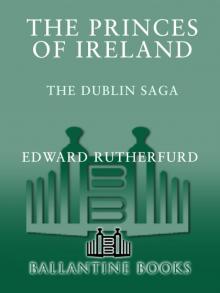 Princes of Ireland
Princes of Ireland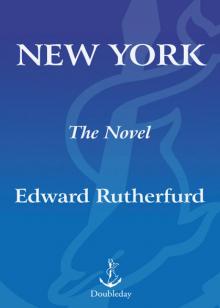 New York
New York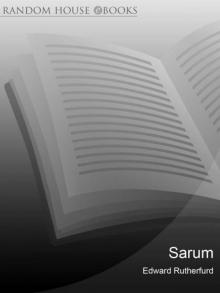 Sarum
Sarum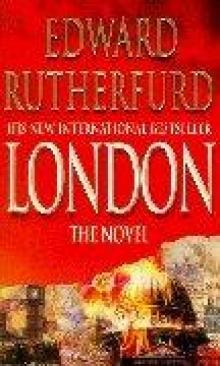 London
London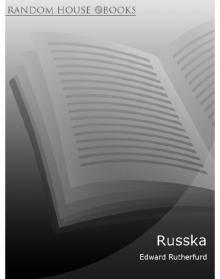 Russka: The Novel of Russia
Russka: The Novel of Russia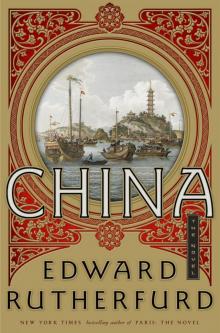 China
China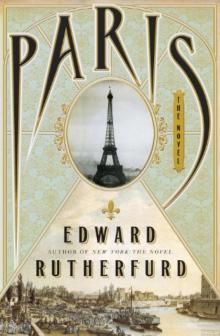 Paris
Paris The Forest
The Forest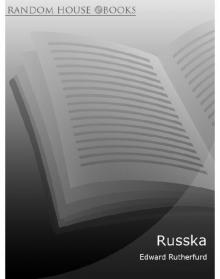 Russka
Russka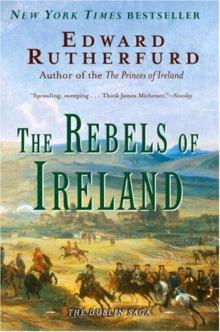 The Rebels of Ireland: The Dublin Saga
The Rebels of Ireland: The Dublin Saga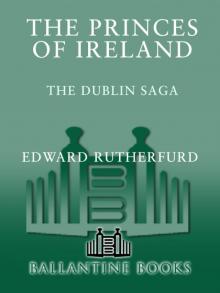 The Princes of Ireland
The Princes of Ireland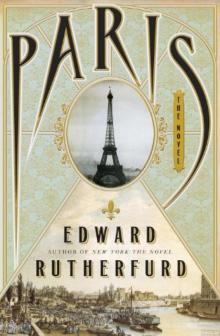 Paris: The Novel
Paris: The Novel